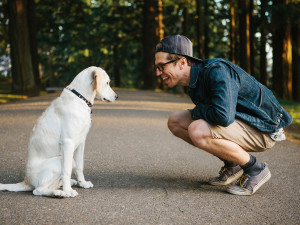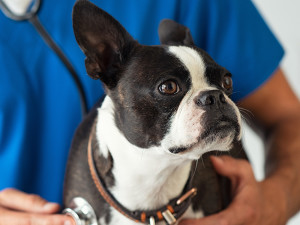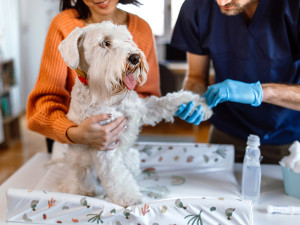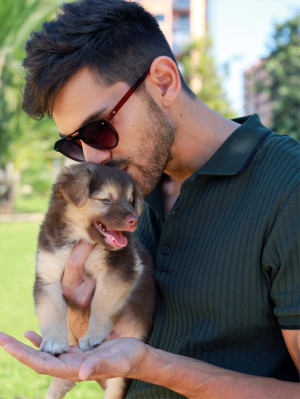Shelter Urges Parvovirus Vaccinations After 10 Puppies Die of the Disease
“The pain, suffering, and loss we have witnessed are completely avoidable.”
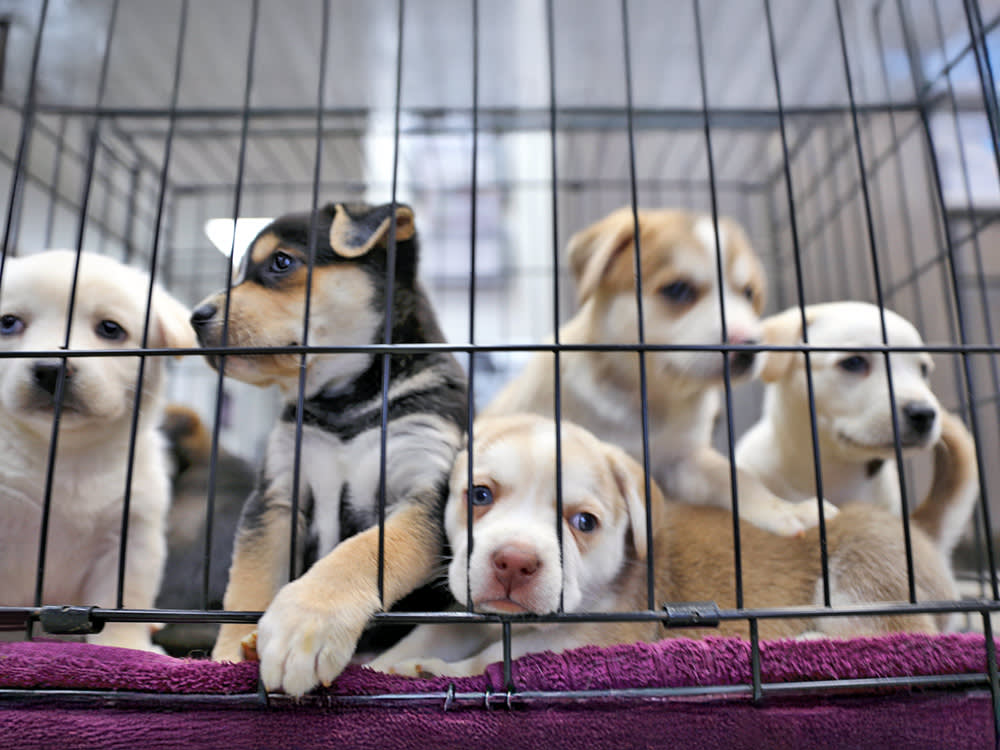
Share Article
This week, the Bowling Green/Warren County Humane Society in Warren County, Kentucky released a statement “begging” pet parents to vaccinate their dogs. The message comes after a tragic month; in the past two weeks, the shelter lost ten puppies to parvovirus.
Over the two-week span, 17 dogs arrived at the Humane Society “fighting for their lives,” the shelter shared on Facebook.opens in new tab The dogs were brought in to receive medical attention from the Humane Society’s veterinary team.
They discovered that the dogs were suffering from parvovirus, also known as “parvo,” a highly contagious virus that attacks a dog’s intestinal lining. Symptoms of parvo include diarrhea, vomiting, lethargy, weight loss, and a bloated abdomen. “An infected dog sheds the parvovirus through feces, so transmission of parvo can occur when other dogs come in contact with those feces directly (via their nose or mouth), or indirectly (by touching contaminated items),” veterinary technician Abbie Deleers wrote for Kinship.
Parvo is treated with intravenous fluids, antibiotics, anti-nausea medication, and temperature control. Four of the infected dogs made a full recovery, and three remain on medical watch. Tragically, despite aggressive treatment, ten dogs passed away.
Thankfully, the virus didn’t spread to other shelter residents. “We want to make it clear, these puppies were all surrendered to our shelter to receive medical care; there is no parvo outbreak at the shelter, and the virus has not infected any of our healthy, adoptable puppies,” the shelter shared.
The shelter shared that fighting for these dogs’ health has greatly impacted the emotional wellbeing of the staff. “I work firsthand with these souls. I grow attached to them the second they walk through our doors,” Cassie, one clinic staff member, shared on Facebook. “I whisper to them that they’re loved, that we’re trying. I hold them when they’re scared. And if they don’t make it, I still cry like they were my own.”
Parvovirus is “easy preventable,” the shelter added, and they’re urging pet parents to take the necessary precautions. The parvo vaccine (DHLPP) can be given to dogs starting at six to eight weeks of age. “Before they’re fully vaccinated, puppies should be kept away from areas that could potentially be contaminated with parvo, such as dog parks, pet stores, and groomers,” Deelers wrote.
If your dog shows signs of parvovirus, they should see a veterinarian immediately — and all dogs should receive their shots and boosters as soon as possible. “I’m begging, please, please, please vaccinate your puppies,” Cassie said. “They can’t do it themselves.”

Sio Hornbuckle
Sio Hornbuckle is the Assistant Editor at Kinship, where they frequently write for the site. As a writer, they specialize in pet news, animal science, and pop culture. They live in New York City with their cat, Toni Collette.
Related articles
![man and lab puppy on park road]()
When, Exactly, Should You Vaccinate Your Puppy?
If it’s time for a round of shots (no, not that kind), follow this guide.
![French bulldog being examined at the vet via stethoscope]()
13 Tips for Saving Money at the Vet
Ways to lower your bill—without compromising your pet’s health.
![a dog receiving a vaccination]()
A New Vaccine May Be Able to Reduce the Risk of Cancer in Dogs
The Vaccination Against Canine Cancer Study (VACCS trial) is showing promising results.
Bordetella Vaccine for Dogs: A Complete Guide
Everything you need to know to make the right decision.
When Can a Puppy Get a Rabies Shot?
And what you should expect after they receive it.
